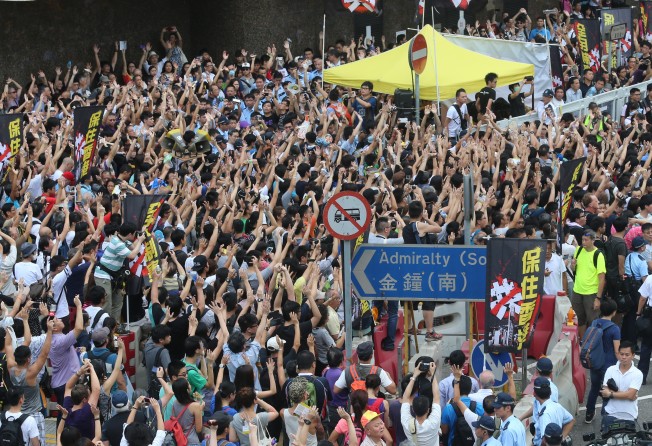Letters to the Editor, October 12, 2017

Democracy calls from the mainland, too
It appears that some local students think their counterparts from the mainland have all been “brainwashed to be patriots or nationalists (“Stereotypes and misperceptions Hong Kong and mainland Chinese students have of each other: what’s true, what’s false?” September 25).
The prevailing mindset seems to be that these young mainlanders do not understand the meaning of democracy because of the prevailing political environment in China. And some go further and say that they have been brainwashed from an early age by the central government.
This leaves them with a very poor impression of these students, but I think these views are often untrue.
During the “umbrella movement” in 2014, many mainland Chinese students visited the sites of the movement in Admiralty, Mong Kok and Causeway Bay, to show their support for local citizens. During this period, I met a student from Shanghai. He said, “I hope Hongkongers will have universal suffrage one day, because I hope China will have democracy one day.”
It is far more difficult nowadays for these youngsters to be brainwashed by the authorities, because more of them visit other countries and often study in the West.
Their horizons have been broadened and so many of these youngsters now hope for change in China, including genuine democratic elections.
A Facebook page named “We Support Hong Kong”, or “Mainland Students Support Hong Kong” in Chinese, was set up during the Occupy Central movement for universal suffrage in 2014 and got more than 5,700 followers.
The page, which thanks Hong Kong for “planting a flower of liberty in our minds”, is still active. Hong Kong can be a model for the rest of China. Universal suffrage is not just important for our city, but for the whole country.
Burnet Chong Wing-lam, Tseung Kwan O
Beware fraud when paying with phone
More people on the mainland are making purchases using their smartphones than ever before. For some of them, paying by cash is a thing of the past. This has raised concerns about online security.
Hong Kong is lagging behind when it comes to e-payments and one reason is that citizens do have worries about their personal data being leaked when they pay for something online. Hackers might get that information during the transmission process or gain access to the phone’s camera and record an image of a QR code. Youngsters and the elderly are particularly vulnerable.
What needs to be done is to raise the level of public awareness, so that smartphone users are on the alert for suspicious apps, for example. Also, firms providing cashless payment services must ensure their security systems are sophisticated. They must develop real-time fraud prevention systems to monitor payments.
Lai Tsz-wai, Kowloon Tong
Parents should not use devices as comforters
Many parents use electronic devices, such as tablets, to comfort their children or keep them occupied, but this can have negative side-effects (“Hong Kong children face health risk from too much screen time, according to new research”, October 6).
There is no replacement for traditional toys and interacting with children, so parents must not overuse these devices. They can be role models and only use their smartphones sparingly in front of them at home.
There are better ways to comfort children when they are crying than giving them a smartphone to play with.
Sandy Chan, Tseung Kwan O
More bikes, fewer cars, a healthy move
Participants in last weekend’s cyclothon called for the government to make the city more user-friendly for bicycles.
Cycling around many parts of Hong Kong can, unfortunately, be stressful and dangerous. By contrast, many modern towns and cities in Europe provide spaces for cycling, such as attractive streetscapes. Developers often have to provide facilities for cycling.
If more people are using bicycles, apart from being a healthy option, this can reduce levels of roadside air pollution.
And the need for on-street parking would be reduced, with fewer cars, and congestion cut.
Rachel Ng, Tai Po
Eat less meat to help cut rising temperatures
Reports about record temperatures (“Hong Kong swelters in hottest October day for almost 130 years – a day before MidAutumn Festival”, October 3) remind us that global warming is directly affecting the city.
Hongkongers, as global citizens, have to recognise this and make an effort to reduce their carbon footprint.
For example, we can eat less meat by following the example set by the group Green Monday and stick to a vegetarian diet one day a week.
We should try to save energy at home by switching off electrical appliances when we do not need them. Also, air conditioners should not be too cold. And even if we have a private car, we should, where possible, use public transport.
Vanessa Wong Lok-yu, Kwai Chung